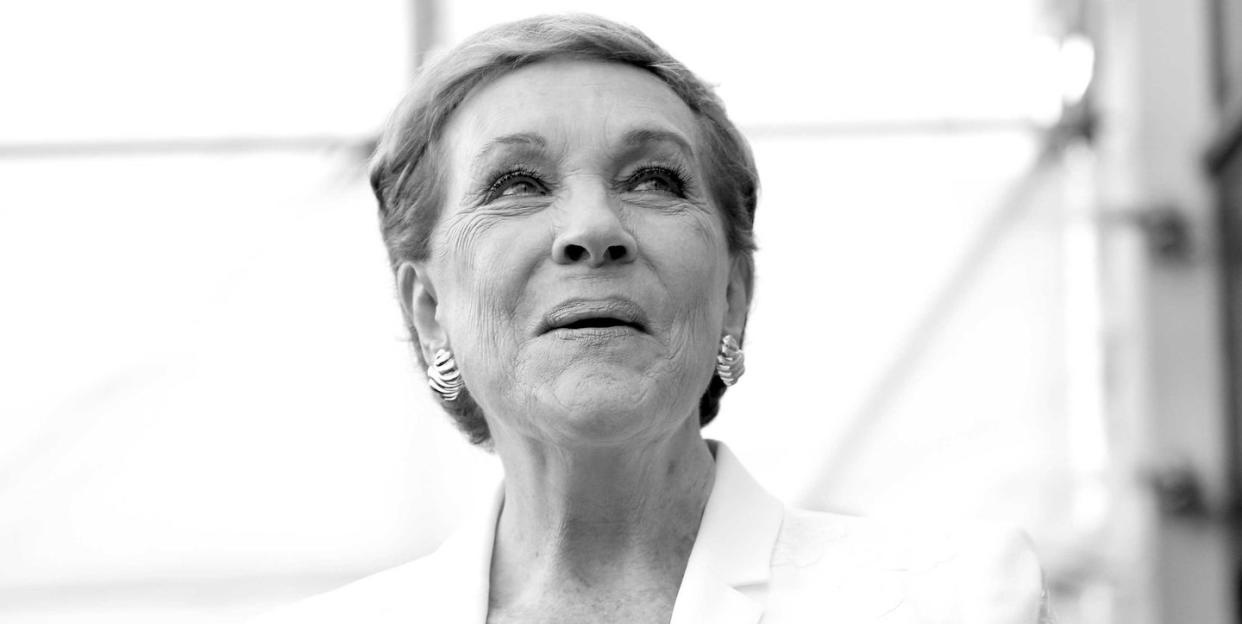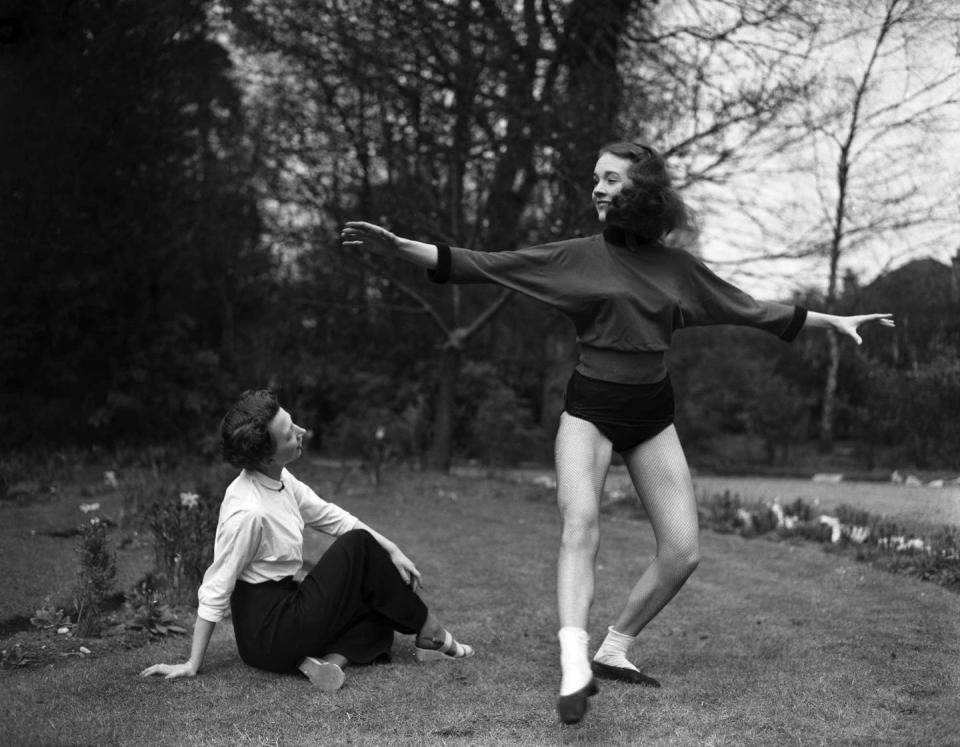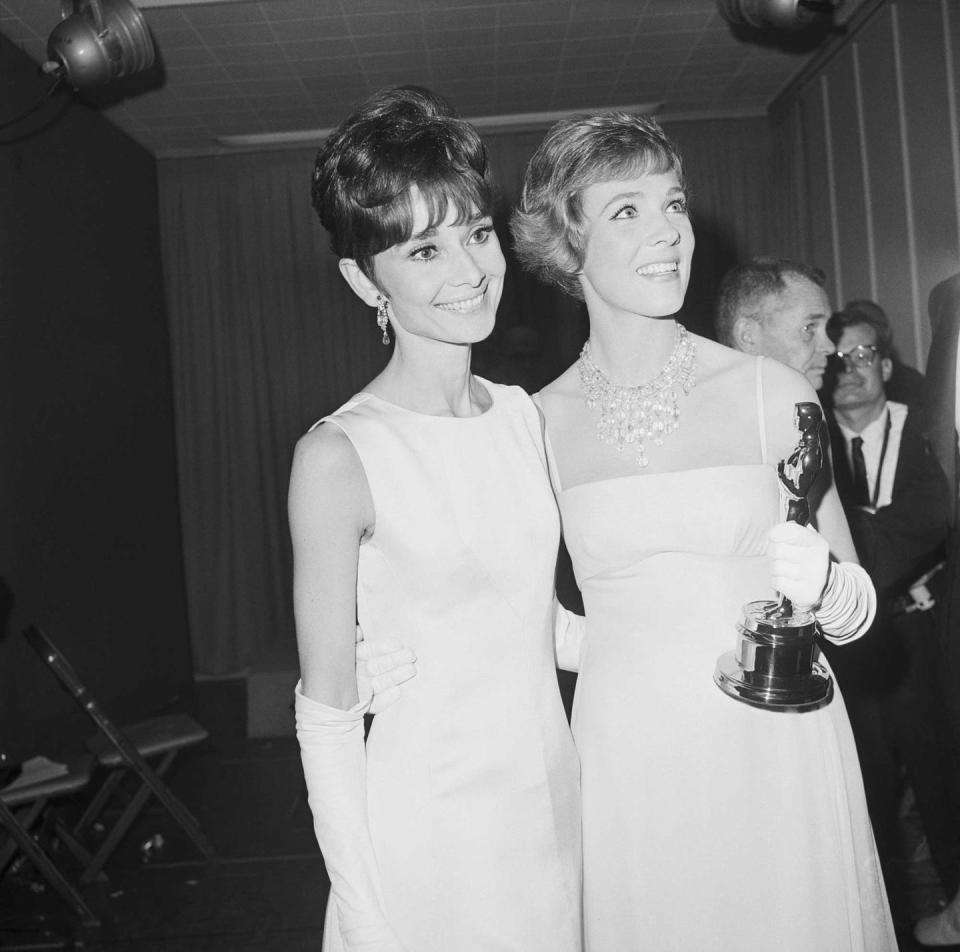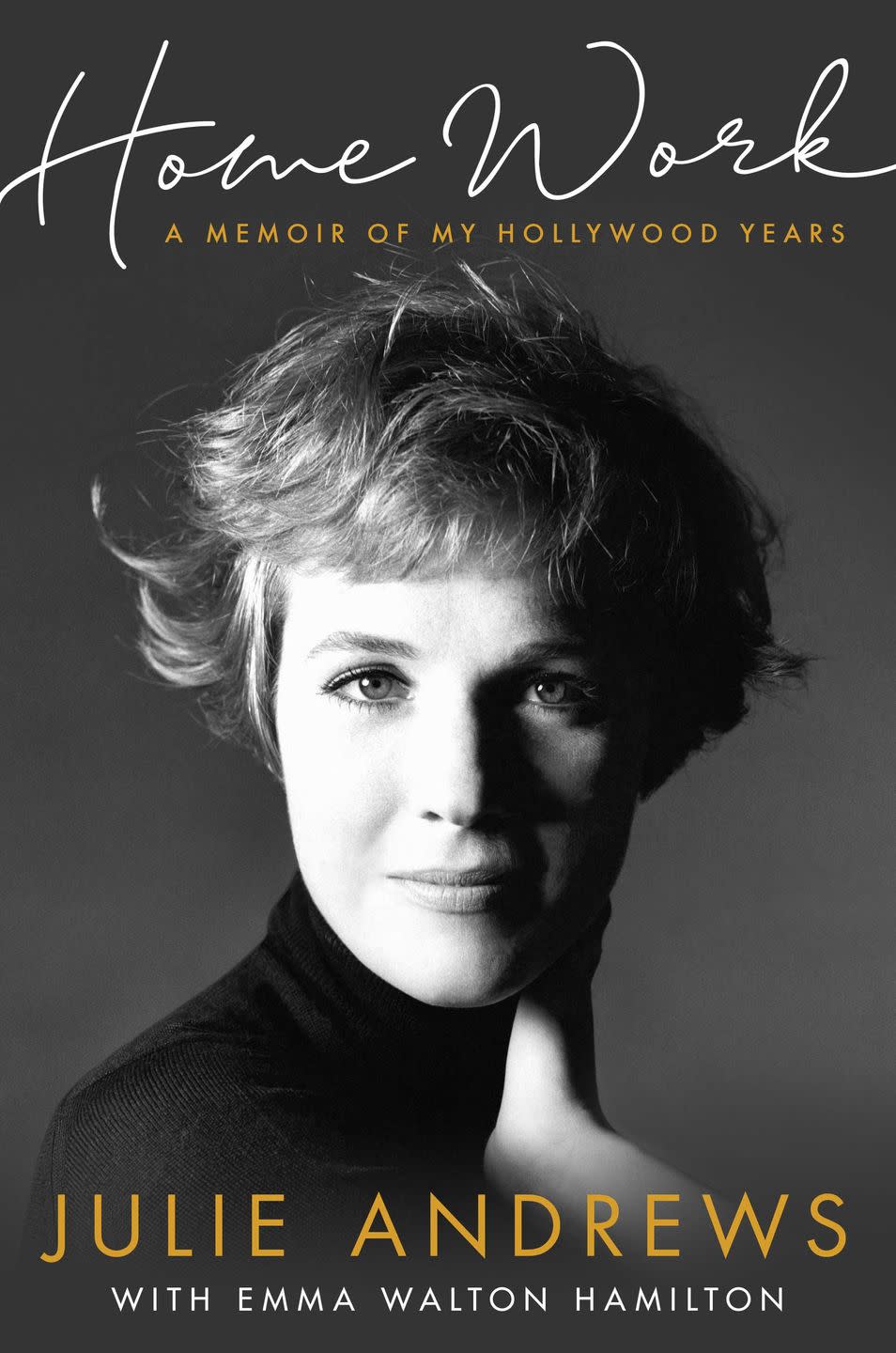Julie Andrews Wants You to Do Your "Best Most Truthful Work"

There is no mistaking that voice coming down the phone line from upstate New York. Clear as a bell, crisp as a slice of lightly buttered toast, it is the voice of domestic order shot through with a ripple of mischief. You only have to hear Dame Julie Andrews say “hello there” and you are instantly in the company of Mary Poppins and Maria von Trapp, with just a dash of Queen Clarisse from The Princess Diaries.
Yet Andrews’ own life has not, it turns out, involved much gathering of edelweiss or flying by umbrella. Eleven years ago, she published the first volume of her memoirs, ruefully entitled Home, which revealed the chaos of her family history. From the age of 10, the little girl with the freakishly grown-up singing voice and a glorious top F was touring post-war Britain’s dingy music halls, supporting her alcoholic mother and stepfather. There was anger, violence and something even more dangerous: in her teens, Andrews started locking her bedroom door at night to stop her stepfather getting into bed with her.

Now, Andrews has written the second instalment of her extraordinary life story. It opens in the early weeks of 1963 as she flies from London to LA with Tony Walton, her husband and childhood sweetheart, and their newborn baby Emma, to film Mary Poppins, the movie that is to ensure her lasting fame. Over the next 30 years, she experiences superstardom, divorce and a career that, inevitably, undergoes periodic slumps. Why did it take her so long to write this sequel to her bestselling first volume? “Research,” she says briskly. “It took four years to work through three decades’ worth of my old diaries. Emma was a huge help, using them to reconstruct a detailed timeline of where I was and what I was doing on any particular day.”
Thorough, certainly, but wasn’t she anxious about turning over such sensitive material to her daughter? “At times, writing my diary was the only thing that was holding me together,” says Andrews, “but I felt fine letting Emma have access to it all. I said, ‘Look, you’re a grown woman with your own family, I don’t think there’s anything here that’s going to shock you.’ And Emma said, ‘Honestly, Mum, it’s OK.’ We are very close, we have no secrets from each other.”
Rereading her old journals was not always a comfortable experience for Andrews either. “What a twit I was!” she says. “The thing about them is that everything is so mixed up. Sometimes I’m recording what we had for dinner and at other times I’m in despair about one of the children.” The diaries seem to have served as a kind of confessional when Andrews’ therapist, whom she sometimes saw up to five times a week, was not available. On their pages, she pours out her anxieties about the huge labour involved in creating a blended family – as well as having Emma, she is stepmother to the two children of her late second husband, the film director Blake Edwards (who was prone to bouts of near-suicidal depression), and is also the mother of two girls adopted from Vietnam in the early 1970s. “Having such a complex family structure was more unusual than it is today – there wasn’t much advice available,” she says. “More than anything, I wanted to make it work, to be a real mum.”

But Andrews wanted to be an artist too. It wasn’t just that she needed the money to pay for the houses in Gstaad and Malibu, and the constant air fares for travelling between them; it was that music-making was still “the thing that gave me absolute joy”. An Oscar for Mary Poppins was followed by the global phenomenon that was The Sound of Music, a film that generated a mixed response, with The New York Times dismissing it as overly sentimental. “What the critics like, what the public likes and what you as the artist like can be very different things,” observes Andrews.
It was a pattern that was to repeat itself over the next three decades. Some films received the acclaim that was their due – Andrews picked up an Oscar nomination for the ahead-of-its-time gender-swap comedy Victor/Victoria – while others were less well received. Star!, a 1968 bio-pic of Gertrude Lawrence, drew on Andrews’ intimate knowledge of music hall, yet fell flat simply because critics and audiences couldn’t accept that it wasn’t another Sound of Music. Her sell-out residency at Caesars Palace in Las Vegas in 1976 was a smash, but you get the sense that she did not find it her most fulfilling work. After almost three-quarters of a century in showbusiness, Andrews says she has learnt to be philosophical (“What matters is that you do the best, most truthful work available to you at the time”) and to be grateful for every opportunity. “My mother drilled it into me – there’s always someone just as good as you waiting in the wings,” she says.
At 84, Andrews remains remarkably successful, despite having lost her singing voice in 1997 following botched surgery on her vocal cords – an event so traumatic that she is not sure she will ever be able to discuss it in detail. She has found fresh ways of being creative, including writing a successful series of children’s books with Emma. Two years ago, Julie’s Greenroom, a Netflix show featuring ‘Ms Julie’ as the inspirational drama coach to a diverse group of child puppets, became a hit. And she is currently working on another Netflix production, Shonda Rhimes’ Bridgerton, a Regency romp in which she will play the narrator Lady Whistledown, a sharp-tongued gossip columnist. “The wonderful thing about all these new ways of making art,” says Andrews, “is that, despite losing my original voice, the one that brought me so much joy and gave me my way in the world, I have been able to find another.”

‘Home Work: a Memoir of My Hollywood Years’ by Julie Andrews (£20, Weidenfeld & Nicolson) is out now.
You Might Also Like

